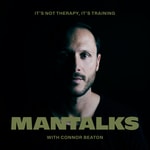Ascend - The Great Books Podcast – Details, episodes & analysis
Podcast details
Technical and general information from the podcast's RSS feed.

Ascend - The Great Books Podcast
Harrison Garlick and Adam Minihan
Frequency: 1 episode/6d. Total Eps: 91

Recent rankings
Latest chart positions across Apple Podcasts and Spotify rankings.
Apple Podcasts
🇺🇸 USA - books
01/08/2025#84🇨🇦 Canada - books
31/07/2025#95🇺🇸 USA - books
31/07/2025#91🇺🇸 USA - books
30/07/2025#68🇺🇸 USA - books
29/07/2025#98🇺🇸 USA - books
28/07/2025#92🇺🇸 USA - books
27/07/2025#71🇺🇸 USA - books
26/07/2025#73🇬🇧 Great Britain - books
25/07/2025#83🇺🇸 USA - books
25/07/2025#76
Spotify
No recent rankings available
Shared links between episodes and podcasts
Links found in episode descriptions and other podcasts that share them.
See all- https://circeinstitute.org/
8 shares
- https://www.costofglory.com/
7 shares
RSS feed quality and score
Technical evaluation of the podcast's RSS feed quality and structure.
See allScore global : 42%
Publication history
Monthly episode publishing history over the past years.
The Odyssey Book Ten: The Bewitching Queen of Aeaea
mardi 10 septembre 2024 • Duration 01:01:35
Dcn. Garlick flies solo to explore the depths of BOOK TEN of the Odyssey: The Bewitching Queen of Aeaea.
Check out thegreatbookspodcast.com for more resources.
From the guide:
53. What happens in book ten?
Odysseus and his men come to the floating island of King Aeolus[1] who Zeus had made the “master of all the winds” (10.24). After hosting them for a month, King Aeolus stuffed all the winds into a bag, except a favorable west wind, and gave it to Odysseus (10.29). Leaving the island, they sailed for nine days until they came so close to Ithaca they could see men “tending fires” on the shore (10.34). Odysseus’ men, however, open the bag of winds, causing a maelstrom, blowing them all the way back to King Aeolus’ island (10.66). The king rejects them as cursed by the gods (10.79), and Odysseus and his fleet sail to the island of the Laestrygonians (10.89). There, Odysseus’ entire fleet, save his own ship, is lost in a surprise attack by the man-eating inhabitants of the island (10.132).
Odysseus’ lone ship comes upon a new island, and Odysseus’ men find a hall and hear a woman singing inside (10.242). The woman is Circe, a goddess, who welcomes all the men to a feast and then changes them into pigs (10.253). Eurylochus, the only one to not go into the hall, runs back and tells Odysseus (10.269). Odysseus sets off to the hall, but along the way runs into Hermes, the messenger god, who tells him how to overcome Circe’s spells (10.305). Odysseus obeys, and Circe is made to swear an oath she will not harm Odysseus (10.380). Odysseus’ men are restored, younger and more handsome (10.436). They remain guests of Circe’s house for a year until Odysseus’ men remind him of his journey home (10.520). The book ends with Circe telling Odysseus he must travel to the house of death and speak to the prophet Tiresias (10.540).
54. What is the relationship between Odysseus and his men after the Cyclops affair?
The narrative of King Aeolus and the bag of winds reveals the lack of trust festering between Odysseus and his men. Note that Odysseus will not trust the ship to any of his crew (10.37), and the crew assumes Odysseus is withholding treasure from them (10.40). Moreover, after the loss of the fleet in the Laestrygonian cove, the spiritedness of the crew, their thumos, is broken. When Odysseus orders his men to scout the hall on what we know to be Circe’s island (10.170), the “message broke their spirits” and they weep (10.217). We see this particularly with Eurylochus, who, when reporting back to Odysseus that Circe has turned the men to pigs, pleads with Odysseus to abandon the men and leave the island (10.289). It worth noting that Odysseus himself was tempted to allow his spirit to break, as after the incident with the winds he had to overcome the temptation of suicide (10.55).
Later, when Odysseus has made a truce with Circe, Eurylochus has a “mutinous outburst” in which he states that Odysseus is to blame for the men eaten by the Cyclops (10.480). It makes explicit the tension throughout book ten. Odysseus is inclined to kill the man but is tempered by his men (10.483). The antagonisms between Odysseus and his remaining crew will continue as a predominant theme throughout the end of Odysseus’ recounting of his story in book twelve.
[1] King Aeolus was “a mortal, king of the floating island of Aeolia and friend of the gods, to whom Zeus gave the custodianship of the winds.” In later mythology, “he was thought of as the god of the winds.”...
The Odyssey Book Nine: Odysseus and the Cyclops
mardi 3 septembre 2024 • Duration 01:20:23
Dcn. Garlick and Adam Minihan discuss BOOK NINE of the Odyssey: Odysseus and the Cyclops. Odysseus finally gives his name and starts to tell his story.
Book Nine is one of the most important books in the Odyssey.
Check out thegreatbookspodcast.com for more information.
From the guide:
48. What happens in book nine?
The guest of good King Alcinous finally declares, “I am Odysseus” (9.21), and he begins to tell his story (9.33). After Troy, Odysseus and the ships under his command raided a city on the island of Ismarus (9.44) where, the next morning, he lost men to a counterattack by the islanders (8.69). Next, Zeus hit Odysseus’ fleet with a storm, a “demonic gale” (9.76), and then, when free of the storm, his fleet was again taken off course by a rip-tide (9.89) that brought them to the land of the “Lotus-eaters” (9.94). Having saved his crew, Odysseus and his men come to a lush, uninhabited island (9.129), and across the strait see an island with signs of habitation (9.185). Odysseus and his men go to the island only to end up trapped in a cave with a cyclops (9.271). Though they plead for protection as guests under Zeus, Homer tells us: the cyclops grabbed two men, beat them against the ground “their brains gushed out all over, soaked the floor—and ripp[ed] them limb from limb to fix his meal” (9.324). He washes down the human flesh with raw milk (9.334).
Odysseus and his men cannot escape the cave due to the enormous stone blocking the entrance, and they cannot kill the cyclops in his sleep for the same reason—they would be trapped in the cave. In the morning, the cyclops bolts down two more men (9.348) and leaves to tend his herds. Odysseus concocts a plan to escape (9.370). Upon his return, the cyclops devours two more of Odysseus’ men, and Odysseus offers the cyclops a strong wine to wash down the “banquet of human flesh” (9.389). The cyclops asks Odysseus’ his name, and Odysseus tells him his name is “Nobody” (9.410). With the cyclops drunk, Odysseus and his men ram a stake into the cyclops’ eye blinding him (9.428). Odysseus and his men escape the cave, but Odysseus tells the cyclops his name (9.560). The book ends with the cyclops asking his father, Poseidon, to curse Odysseus’ journey home and to “let him find a world of pain at home” (9.595).
The Odyssey Book One: Athena Inspires the Prince
mardi 2 juillet 2024 • Duration 01:37:59
WE ARE STARTING THE ODYSSEY! Dcn. Harrison Garlick is joined by Dr. Frank Grabowski and Mr. Thomas Lackey to discuss Book One of the Odyssey.
Check out our website - thegreatbookspodcast.com - for a written guide to the Odyssey and other resources.
Questions discussed:
- What happens in book one?
- What should be observed about the invocation to the Muses?
- What should be made of Zeus’ comment on fate?
- What happened to Agamemnon?
- What should be made of Telemachus?
- What major themes and narratives help unfold the story of the Odyssey?
Join us as we continue in our YEAR OF HOMER.
Intro to the Odyssey with Dr. Patrick Deneen
mardi 25 juin 2024 • Duration 01:06:18
Dcn. Harrison Garlick welcomes Dr. Patrick Deneen, Dr. Chad Pecknold, and Dr. Richard Meloche to introduce Homer's Odyssey.
Dr. Patrick Deneen is a Professor of Political Science at Notre Dame. He is the author of many books and articles including Why Liberalism Failed (2018). His teaching and writing interests focus on the history of political thought, American political thought, liberalism, conservatism, and constitutionalism.
Dr. Chad Pecknold, Associate Professor of Systematic Theology at the Catholic University of America. “In political theology, Pecknold is principally concerned with close readings of Augustine’s masterwork, The City of God, as a fundamental and transcendent vision that inspires, and has the power to critique and correct, the dynamics of Western civilization.”
Dr. Richard Meloche, President of the Alcuin Institute for Catholic Culture, a ministry of the Roman Catholic Diocese of Tulsa and a colleague of Dcn. Garlick's at the Chancery.
INTRODUCTION TO THE ODYSSEY
The group discusses the canon of the great books, why we should read Homer and his Odyssey, the role of the great books in theological formation, and key introductory themes in Homer's Odyssey.
Against Great Books by Deneen: https://www.firstthings.com/article/2013/01/against-great-books
The Odyssey of Political Theory by Deneen: https://www.amazon.com/Odyssey-Political-Theory-Politics-Departure/dp/0847696235?ccs_id=073621fb-e234-4289-9205-bc6fab3f444a
Check us out on Facebook, X (Twitter), Youtube, and Patreon.
After-Hours: The Story Between the Iliad and the Odyssey
mardi 18 juin 2024 • Duration 41:42
Dcn. Harrison Garlick and Adam Minihan discuss the events BETWEEN the Iliad and the Odyssey.
There is a notable gap between the Iliad and the Odyssey. As the Odyssey picks up after the fall of Troy, tradition turns to authors such as the Greek poet Sophocles, the Greek poet Euripides, and the Roman poet Virgil to tell the story of how Troy fell. The following questions, while tracking the fates of specific individuals, tell the narrative that occurs between the Iliad and the Odyssey. One may make a distinction between the Homeric tradition and the Greek tradition at large.
What does this episode cover?
What happens to Achilles?
What happens to Giant Ajax?
What happens to Paris?
What is the story of the Trojan Horse?
How does Troy fall?
What happens to Astyanax, Hector's son?
We start reading the Odyssey next! Join us!
Iliad: Book 24 | Achilles and Priam
mardi 11 juin 2024 • Duration 01:47:44
Dcn. Harrison Garlick and Adam Minihan discuss the FINAL book of the Iliad: Book 24 - Achilles and Priam.
Check out our 65-page guide to the Iliad!
I have put to my lips the hands of the man who killed my son.
Priam to Achilles (24.591)
103. What happens in book twenty-four?
The funeral games have ended, and Achilles, who still mourns for Patroclus, drags Hector’s body behind his chariot around Patroclus’ tomb (24.19). Twelve days after the death of Hector, Apollo pleads with the gods to save the body of the Trojan prince (24.39). In response, Zeus declares that “Achilles must receive a ransom from King Priam, Achilles must give Hector’s body back” (24.94). Zeus tells Thetis his plan, and Thetis informs her son (24.127). Zeus sends Iris to Troy to tell King Priam, who she finds smeared in dung and mourning his son, that the Father of gods and men commands him to ransom his son from Achilles (24.204). Priam, despite the protests of his wife (24.238), obeys the goddess and prepares to leave (24.259). Priam leaves Troy on his chariot alongside a wagon of treasure (24.382). On the plains of Troy, Priam is met by Hermes, under the guise of a Myrmidon, who guides him into the Achaean camp (24.526). Hermes reveals himself to Priam and tells the king of Troy to go into Achilles’ tent and hug his knees (24.546).
Priam does as he is told, and, hugging the knees of Achilles, kisses “his hands, those terrible man-killing hands that slaughtered Priam’s many sons in battle” (24.562). Priam exhorts Achilles to remember his own father, Peleus, and Achilles thinks of his father and weeps with Priam (24.595). Priam asks for the body of Hector (24.650), and though Achilles warns Priam not to tempt his rage (24.667), Achilles has the body of Hector washed and carries it to the wagon himself (24.691). Achilles promises King Priam that the Achaeans will wait twelve days before restarting the war to allow Troy to bury Prince Hector (24.787). Priam sleeps on the porch outside the lodge of Achilles, and Hermes wakes him up to send him home before Agamemnon finds him (24.808). Priam returns home to Troy, and Troy is “plunged… into uncontrollable grief” (24.831). For nine days, the Trojans “hauled in boundless stores of timber” for the funeral pyre of Hector (24.921). On the tenth day, they set the body of Hector “aloft the pyre’s crest, [and] flung a torch and set it all aflame” (24.924). The next day, the Trojans bury Hector’s bones in a golden chest and end the rites with a “splendid funeral feast” (24.942). And thus, Homer ends the Iliad with the burial of “Hector breaker of horses” (24.944).
104. What is the backstory of why Hera and Athena hate Troy?
In the final book of the Iliad, Homer makes reference to the narratives that led to the Trojan war. Hera states that she “brought up” Thetis and gave her in marriage to a mortal, King Peleus (24.72). The story goes that Zeus loved Thetis, but the Titan Prometheus told him that Thetis was destined to bear a son greater than his father.[1] As such, Zeus gave Thetis to Peleus, a mortal, so the son would also be mortal.[2] Homer’s reference of Hera’s role in the Iliad implies she had some part in this scheme as well. Peleus had to wrestle the immortal sea nymph, Thetis, as she changed shapes to win her heart.[3] He was successful, and the gods...
Iliad: Book 23 | The Funeral Games for Patroclus
mardi 4 juin 2024 • Duration 48:58
Dcn. Harrison Garlick and Adam Minihan discuss Book 23 of the Iliad: The Funeral Games.
Check out this section of our guide to the Iliad!
Sleeping, Achilles? You’ve forgotten me, my friend. You never neglected me in life, only now in death. Bury me, quickly—let me pass the Gates of Hades.
Patroclus (23.81)
100. What happened in book twenty-three?
Now back at the Achaean camp, Achilles leads his Myrmidons in mourning around the body of Patroclus (23.13). That night, as Achilles lay by the shoreline, the ghost of Patroclus appears to him (23.76). Patroclus states: “Sleeping Achilles? You’ve forgotten me, my friend… bury me, quickly—let me pass the gates of Hades” (23.81). For as Patroclus further explains, he is not permitted to cross the river Styx until he has received his funeral rites (23.86).[1] Finally, Patroclus requests that his bones and the bones of Achilles be placed in a single urn and buried together (23.100). The next morning, Achilles has a pyre built for Patroclus (23.188). Achilles slaughters sheep, cattle, stallions, and two of Patroclus’ dogs and places them all on the pyre with Patroclus (23.190). He then slaughters a dozen young Trojans, as sacrifices to lay alongside Patroclus on his pyre (23.200). The pyre is lit and, after praying to two of the gods of the winds, it burns well (23.221). Meanwhile, Homer tells us that Apollo and Aphrodite are protecting the body of Hector from harm and decay (23.212).
Achilles tends to the pyre all night until “sleep overwhelms him” (23.265). Achilles awakes and tells the Achaeans to gather the bones of Patroclus and place them into a golden urn; then, the urn will be placed in a small barrow until Achilles dies, then a large barrow will be built for the two of them (23.281). Achilles then announces there will be “funeral games” (23.298), which will consist of a chariot race, boxing, wrestling, a footrace, a duel in battle gear, shot put, archery, and spear throwing. The culture of competition demonstrated in these funeral games would eventually give rise to the Olympics.[2]
101. Who won the funeral games?
The winners of the chariot race were in order: Diomedes, Antilochus, Menelaus, Meriones, and Eumelus (23.572). Eumelus received a consolation prize from Achilles (23.621). Menelaus accuses Antilochus of a foul, Antilochus concedes to him; yet Menelaus’ anger relents, and the Spartan king gives the second prize, the mare, back to Antilochus (23.680). Achilles gives the original fifth place prize to Nestor as a reminder of Patroclus (23.689). Epeus defeats Euryalus in a boxing match (23.769). Giant Ajax and Odysseus wrestle to a stalemate (23.818). Odysseus, with the help of Athena, wins the footrace (23.864). In the duel in battle gear, Giant Ajax goes against Diomedes, but the friends of Giant Ajax call for it to stop (23.913). Achilles then awards a sword to Diomedes as the winner (23.915). In shot put, Polypoetes takes the prize (23.939). Meriones, with the blessing of Apollo, defeats Teucer in archery (23.977). Lastly, Agamemnon wins the spear throwing contest by default due to his station as the high king (23.989).
102. What else should we observe in book twenty-three?
The apparition of Patroclus reveals the religious understanding that a body denied its funeral rites...
Iliad: Book 22 | The Death of Hector
mardi 28 mai 2024 • Duration 53:50
Dcn. Harrison Garlick and Adam Minihan discuss Book 22 on the Death of Hector.
“There are no binding oaths between men and lions—wolves and lambs can enjoy no meeting of the minds—they are all bent on hating each other to death.”
Achilles (22.310).
97. What happens in book twenty-two?
The Trojans scurry back into the city like “panicked fawns,” while Hector remains outside the walls (22.05). Apollo, who had taken the form of a Trojan soldier to make Achilles chase him, reveals his trickery to Achilles (22.09)—and Achilles turns back to the city (22.26). Despite the pleas of Priam (22.31) and Hecuba (22.93), Hector remains outside the walls “nursing his quenchless fury” (22.115). As Achilles approaches, Hector’s courage fails, and he begins to run around the walls of Troy with Achilles in pursuit (22.163). Zeus’ “heart grieves for Hector,” (22.202), but he gives permission to Athena to do as she wills (22.220). Hector tries to enter the city, but Achilles thwarts him (22.234). Achilles also holds back the Achaean army, now observing the chase, from intervening (22.245). Zeus once again holds out his golden scales, and fate elects that it is time for Hector to die (22.249).
Athena takes on the form of Deiphobus, brother of Hector, and convinces Hector to stand together and fight Achilles (22.271). Hector faces Achilles and tries to make a pact that the victor will not mutilate the corpse of the fallen but give it to his people for burial (22.301). Achilles rejects this offer, stating: “There are no binding oaths between men and lions—wolves and lambs can enjoy no meeting of the minds—they are all bent on hating each other to death” (22.310). Hector and Achilles clash in combat, and Hector calls to his brother, Deiphobus, for help—but there is no answer (22.347). Hector realizes the gods have tricked him and that his time has come (22.350). He elects to die in glory, and he charges Achilles (22.359). Achilles strikes down Hector and tells him: “The dogs and birds will maul you” (22.395). Hector pleads to be given to his people, but Achilles rejects him saying: “My fury would drive me now to hack your flesh away and eat you raw” (22.408). Hector prophesies that “Paris and Lord Apollo” will strike down Achilles outside of Troy (22.423). Hector dies (22.425). The Achaeans all stab his body (22.437), and Achilles drags it behind his chariot (22.466). Priam and Hecuba cry out for their son (22.478), and Andromache “bursts out in grief” (22.560). The book ends with Andromache lamenting the impending fate of her son, Astyanax, the little “Lord of the City” (22.569).
98. What structure does piety give the death of Hector?
Previously, Hector’s return to Troy provided an insight into the ancient threefold notion of piety: gratitude toward the gods, the city, and the family. It is a gratitude that precipitates a sense of duty. The threefold notion of piety—which is in a hierarchal order—appears to provide a certain infrastructure (and tension) to the narrative around Hector’s death. For example, Hector disregards the appeals of his parents, Priam (22.32) and Hecuba (22.93), to retreat to the walls of Troy presumably due to his duty to defend Troy (22.129). Hector’s piety toward the gods is praised by Zeus in the same conversation in which the son of Cronus orchestrates his death (22.129). It is notable the deception of Hector comes through his comradery toward another soldier of Troy and a familial relation, his brother (22.270). It further raises the question that for all Hector’s piety toward Troy, no one seems interested in helping him. Hector, who is...
Iliad: Book 21 | Achilles Fights the River
mardi 21 mai 2024 • Duration 01:01:11
Dcn. Harrison Garlick and Adam Minihan discussed BOOK 21 of the Iliad: Achilles Fights the River.
“Come friend, you too must die. Why moan about it so? […] Even for me, I tell you, death and strong force of fate are waiting.”
Achilles (21.119).
CHECK OUT OUR GUIDE TO THE ILIAD.
93. What happens in book twenty-one?
The Trojans are in full retreat. Achilles drives half the Trojan army back toward Troy over the plains, but the other half is driven into the Xanthus river (21.09). Achilles, who leaps into the waters, slaughters Trojans until his arm grows tired—at which point he captures twelve Trojans for Patroclus’ funeral (21.30). Achilles, “insane to hack more flesh” (21.37), returns to the river and kills Lycaon, a Trojan hugging his knees for mercy (21.131). Achilles kill Asteropaeus, son of the river god Axius, who was ambidextrous and fought with two spears (21.185). The river Xanthus takes human shape, and the river-god cries out to Achilles: “All my lovely rapids are crammed with corpses now… Leave me alone… I am filled with horror!” (21.250)
Achilles agrees, but then overhears the river-god Xanthus asking Apollo to help the Trojans (21.258). Achilles plunges into the “river’s heart” to war against him (21.264), and Xanthus beats and batters Achilles down with roaring waves (21.281). Achilles cries out to Zeus to not let him die like some pig-boy who failed to ford the river (21.319), and Poseidon and Athena save him (21.325). Xanthus tries to attack Achilles again on the flooded corpse-ridden plains of Troy (21.370), but Hera sends Hephaestus to save him (21.377). The god of fire scorches the plains consuming the water and corpses alike (21.396). Xanthus cries out to Hera, and Hephaestus relents (21.418).
Zeus was “delighted” to see the gods in conflict (21.442). Athena once again defeats Ares (21.462) and then batters down Aphrodite when she tries to help him (21.484). Poseidon challenges Apollo, but Apollo refuses to fight (21.527). Artemis, his sister, mocks Apollo and, having caught the attention of Hera, is subsequently beaten down by Zeus’ consort (21.545). Hermes tells Leto he will not fight her and allows her to take her daughter, Artemis, up to Olympus (21.568). Apollo heads to Troy to help them not fall to the Achaeans (21.592). The book ends with Apollo saving Agenor from Achilles, but then taking on the appearance of the Trojan and leading Achilles on a chase away from Troy (21.657).
94. Is Achilles becoming more god-like?
The increasing rage of Achilles is presented as a sort of deification. We have already seen him reject mortal food only to be fed by immortal ambrosia (19.412), and end of the last book linked his rage with being like a god (20.558). Book twenty-one continues the theme of tethering Achilles’ increasing rage with becoming more god-like.[1] Notably, in his ascending rage, Achilles the mortal elects to take on a minor god, the river-god Xanthus (21.264). One is tempted here to present Achilles’ rage as something unnatural, inhuman that is repulsive particularly to a god of nature.[2] Achilles’ ascendency to godhood via his rage shows its limitations, as he is conquered by the river-god (21.308). We should note that for him to die as a “pig-boy” would be an ignoble death in contradistinction to his elected fate to win everlasting glory in Troy. Achilles is saved by Hephaestus at Hera’s command or rather the Olympian...
Interview with the Chivalry Guild
jeudi 16 mai 2024 • Duration 01:29:27
Dcn. Harrison Garlick interviews George of the Chivalry Guild on topics such as CS Lewis, virtue, magnanimity, meekness, and the importance of strength and prowess.
Deacon and George will also discuss his new book - "Chivalry: An Ideal Whose Time Has Come Again" - and explore the concept of noblesse oblige.
Thank you for checking out Ascend! We exist to help people study the great books and explore timeless truths. Check out our website and account on X for more information.








